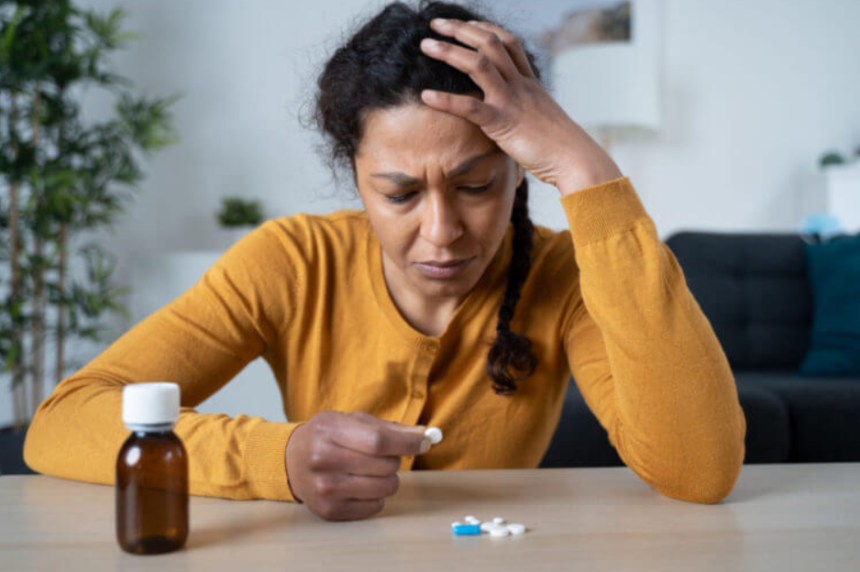Nearly a third of clinically depressed people struggle with substance abuse. This statistic is alarming but not surprising. Depression and substance abuse often go hand in hand. It creates a vicious cycle that’s hard to break.
It is important to understand the connection between these two conditions to take the first step towards finding a way out.
In this article, we’ll understand depression and its impact, how substance abuse fuels depression, and steps toward recovery.
Understanding depression and its impact
Depression is more than just feeling sad or having a bad day. It’s a serious mental health condition that affects how people think, feel, and function. Common symptoms include:
- Persistent sadness or emptiness
- Loss of interest in activities once enjoyed
- Fatigue and lack of energy
- Difficulty concentrating or making decisions
- Feelings of hopelessness or worthlessness
When someone feels this way for weeks or months, it becomes overwhelming. Many people turn to alcohol or drugs as a way to numb the pain or escape their emotions. This is often called “self-medication.” While it may seem like a temporary fix, it usually leads to more problems in the long run.
How substance abuse fuels depression
Not only does substance abuse mask depression, it also makes it worse. Alcohol and drugs can alter brain chemistry, interfering with mood regulation.
For example, alcohol, a depressant, intensifies feelings of sadness and hopelessness. Stimulants like cocaine may provide a short-lived high but end up in severe emotional crashes. Opioids and other sedatives dull emotions but increase feelings of isolation over time.
Withdrawal symptoms also play a role. When the effects of a substance wear off, people often experience heightened anxiety, irritability, or deep sadness. This drives them to use it again, creating a dangerous cycle of dependence and worsening depression.
The vicious cycle
Depression takes a person to substance abuse, and substance abuse results in depression. Together, they create a loop that’s hard to escape. Imagine someone feeling so hopeless that they drink to forget their pain. The alcohol might provide temporary relief, but it also worsens their depression. The next day, they feel even lower and drink again to cope. Over time, this pattern becomes a destructive habit.
This cycle doesn’t just affect mental health. It also harms physical health, relationships, and job performance. Left unchecked, it can lead to severe consequences like addiction, self-harm, or even suicide.
Risk factors and warning signs
Certain factors make people more likely to experience both depression and substance abuse. These include:
Trauma – Experiencing abuse, neglect, or a major loss.
Genetics – A family history of mental health issues or addiction.
Stress – Chronic stress from work, relationships, or financial problems can push people toward unhealthy coping mechanisms.
Lack of support – Feeling isolated or lacking a strong support system can make it harder to cope with challenges.
It’s also important to watch for warning signs that someone may be struggling with both conditions. This may include using substances more frequently or in larger amounts, neglecting responsibilities or withdrawing from loved ones, showing extreme mood swings or irritability, or talking about feeling hopeless or wanting to escape.
If you notice these signs in yourself or someone else, it’s time to seek help.
Breaking the cycle and taking steps towards recovery
Recovering from depression and substance abuse is challenging, but it’s possible with the right approach. Now, we’ll talk about some steps that help break the cycle.
Seek professional help
Therapy is the first step in addressing both depression and substance abuse. Cognitive Behavioral Therapy (CBT) is a well-known approach to identify harmful thought patterns and develop healthier coping strategies. In some cases, medication may also be prescribed to manage symptoms.
For those with severe addiction, rehab programs provide a safer and more structured environment for recovery. The person should search for rehab centers near them. Like if they are in California, they can search for malibu depression treatment centers for combined therapy, medical support, and holistic treatments to address the root causes of the problem.
Build a support system
Recovery is easier when you’re not doing it alone. Friends, family, and support groups encourage and hold you accountable. Sharing your struggles with others who understand helps a lot.
Develop healthy habits
Small lifestyle changes have a big impact on mental health. Try to exercise regularly, even if it’s just a daily walk. Eat a balanced diet to nourish your body and mind. Practice mindfulness or meditation to reduce stress. Stick to a regular sleep schedule to improve energy and mood.
Avoid triggers
Identify situations, people, or places that make you want to use substances. Find healthier ways to cope, like talking to a friend or engaging in a hobby.
Be patient with yourself
Recovery takes time, and setbacks are part of the process. Celebrate small victories and remind yourself that progress is still progress.
The role of awareness and prevention
Raising awareness about the link between depression and substance abuse can help prevent others from falling into the cycle. Open conversations about mental health and addiction reduce stigma and encourage people to seek help sooner. Education is also needed. Schools, workplaces, and communities should provide resources and training to recognize early warning signs.
To conclude
Depression and substance abuse are deeply connected, but recovery is always possible. We must first understand the dangerous cycle as it is the first step toward breaking free. With professional help, a strong support system, and healthy habits, anyone can take back control of their life.
If you or someone you know is struggling, don’t wait to seek help. Remember, the journey to recovery begins with a single step.
FAQs
- What is the link between depression and substance abuse?
The symptoms of depression drive people towards substance use. Consuming drugs or alcohol to self-medicate depression worsens the symptoms of it.
- How can one overcome addiction and depression?
One of the most common forms of therapy to overcome addiction and depression is Cognitive Behavioral Therapy (CBT).
- What are the common causes of depression and substance abuse?
Trauma, genetics, stress, or lack of support could be the causes of depression and substance abuse.














